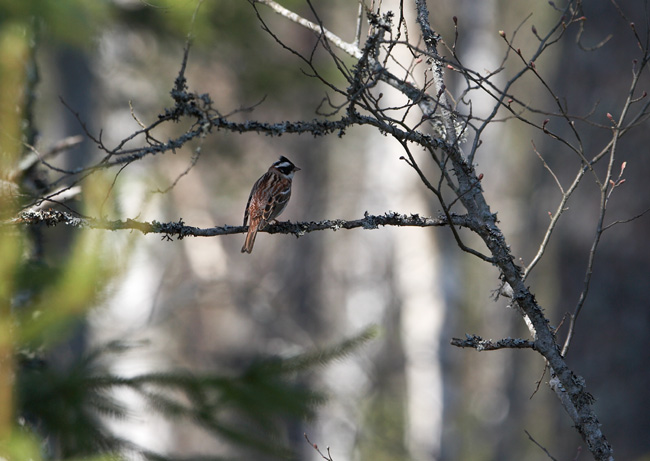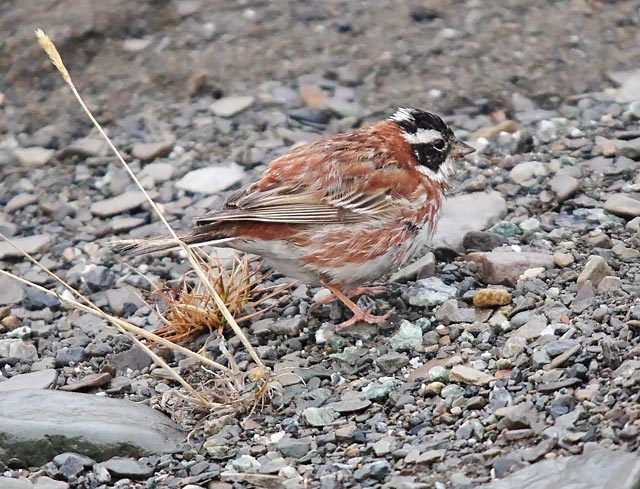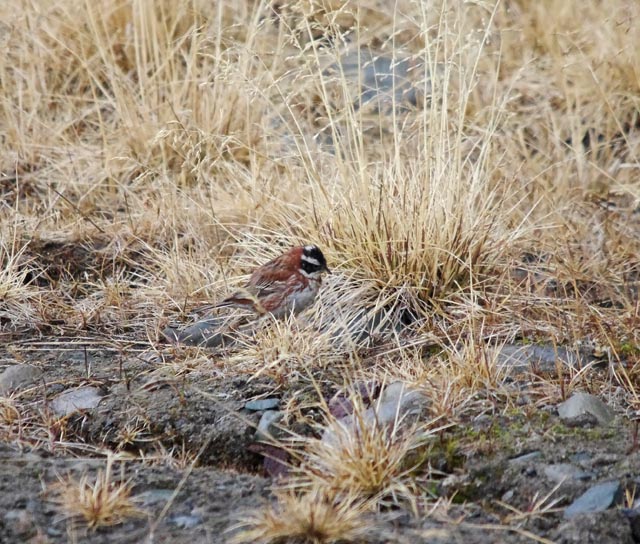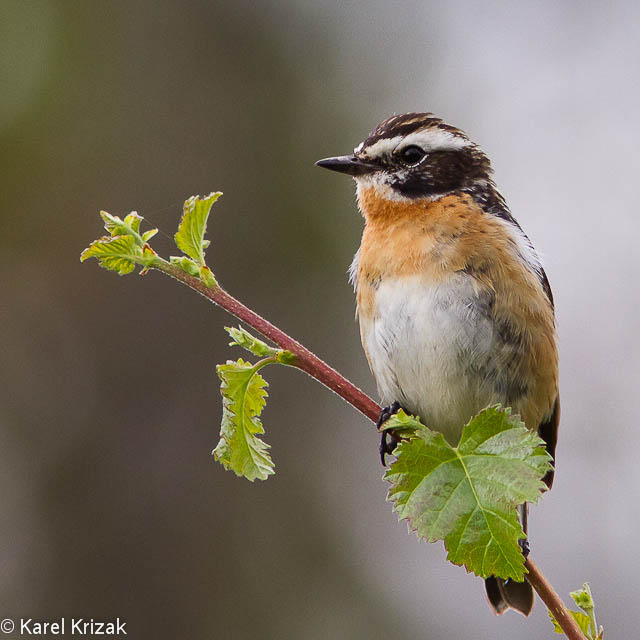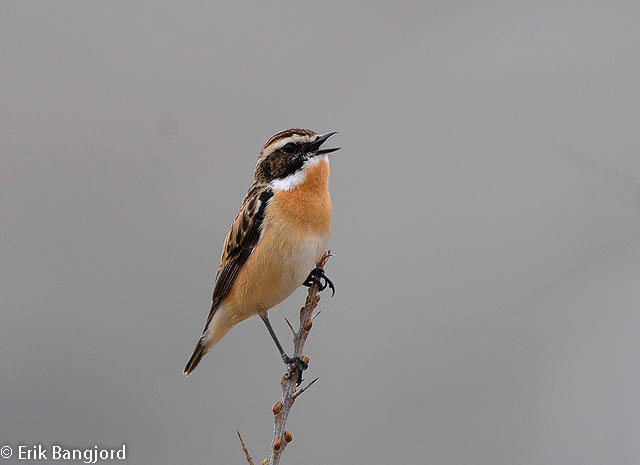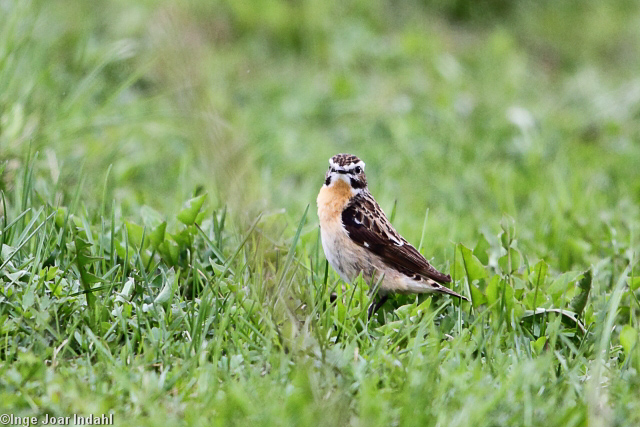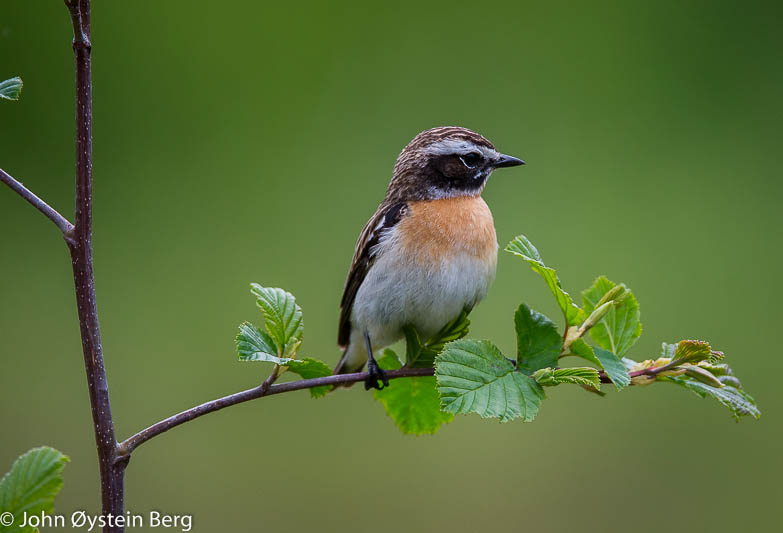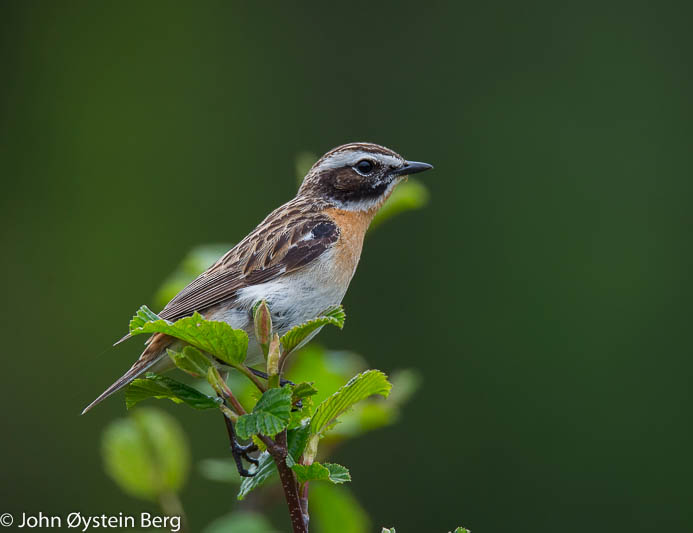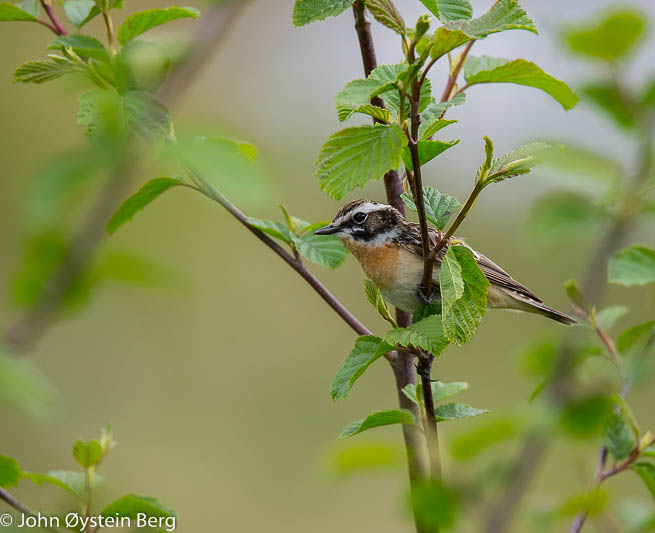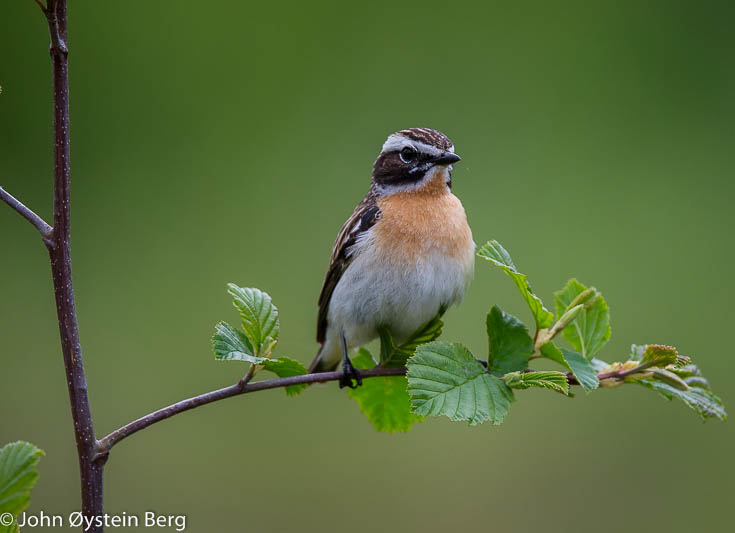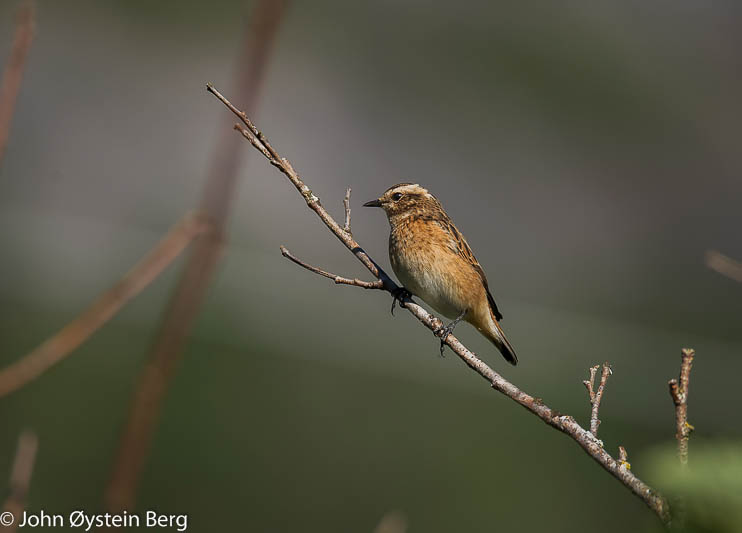Rustic Bunting (Emberiza rustica)
Whinchat (Saxicola rubetra)
All plumages differs from Reed Bunting, and most other buntings by; white belly, pale cheek-patch, flanks coarsely spotted in rufous red, rufous rump with no streaking, pale pinkish legs and lower mandible. Summer plumage male easily recognized by boldly rufous breast and contrasting black and white head pattern. Young male resembles females, and may breed before adult plumage is fully developed. Posture often erect when moving around on the ground. Crown feathers often erect. Flight pattern light and fluttering, and more even than in Reed Bunting.
Sound:Contact call a short "zick", like Little Bunting, but slightly sharper. Song distinct and melodic: A soft, fluting phrase in an undulating rhythm. Integrated in the flute-like tones are high-pitched, dunnock-like bi-notes, especially towards the end of each phrase.
Song:
Distribution:
Xeno-canto: map
Ecology:Birdlife ecology
Links:
Observation.org Latest observations
Image search Flickr NB! May give other species
CCSmall member of the thrush family, with erect posture and large head. Distinct white or buff supercilium in all plumages. Base of primaries shiny white in adults, especially adult male. Coarsely spotted buff rump. Base of tail with white triangular patches. Juveniles with white speckles on upperparts and whitish throat. Lacks the white base of primaries, but supercilium bold.
Sound:Contact call resembles many of it relatives. A short, soft "peeu", followed by a hard "check" (like hitting two rocks together). The "peeu"-sound is depper and more resonant than similar sounds by Wheatear and Stonechat. Song variable with lots of mimicry. The short phrases starts with dry, rattling or sneering trills, followed by clear whistling notes and expert mimicry. More varied, both in tone and tempo, than both Stonechat and Wheatear.
Song:
Distribution:
Xeno-canto: map
Ecology:Birdlife ecology
Links:
Observation.org Latest observations
Image search Flickr NB! May give other species
CC
 English
English Albanian
Albanian
 Armenian
Armenian
 Bulgarian
Bulgarian
 Catalan
Catalan
 Croatian
Croatian
 Czech
Czech
 Danish
Danish
 Dutch
Dutch
 Finnish
Finnish
 French
French
 Georgian
Georgian
 German
German
 Greek
Greek
 Hungarian
Hungarian
 Italian
Italian
 Latvian
Latvian
 Lithuanian
Lithuanian
 Macedonian
Macedonian
 Norwegian
Norwegian
 Polish
Polish
 Portuguese
Portuguese
 Romanian
Romanian
 Russian
Russian
 Sami : Lule sami
Sami : Lule sami
 Sami : North sami
Sami : North sami
 Sami : South sami
Sami : South sami
 Scientific names
Scientific names
 Serbian
Serbian
 Spanish
Spanish
 Swedish
Swedish
 Ukrainian
Ukrainian


